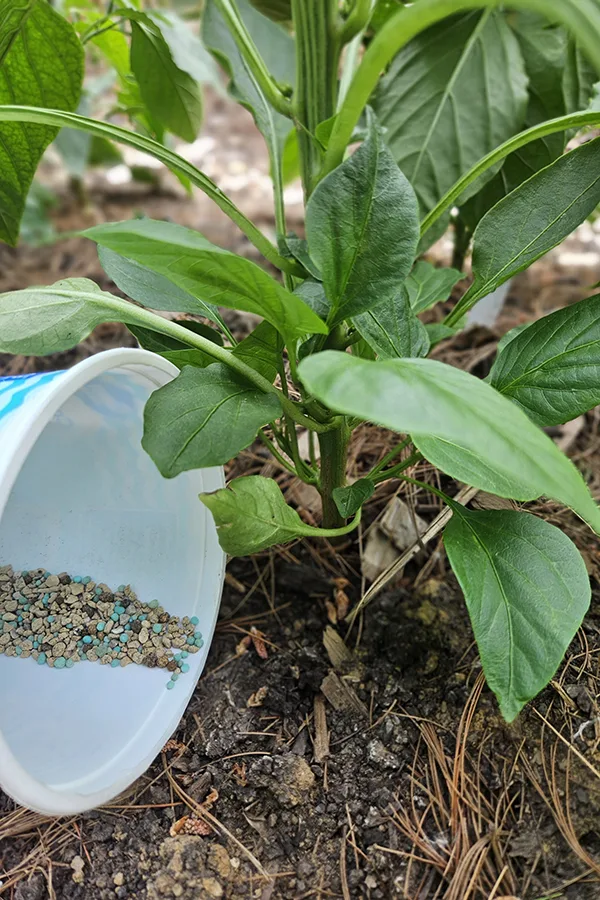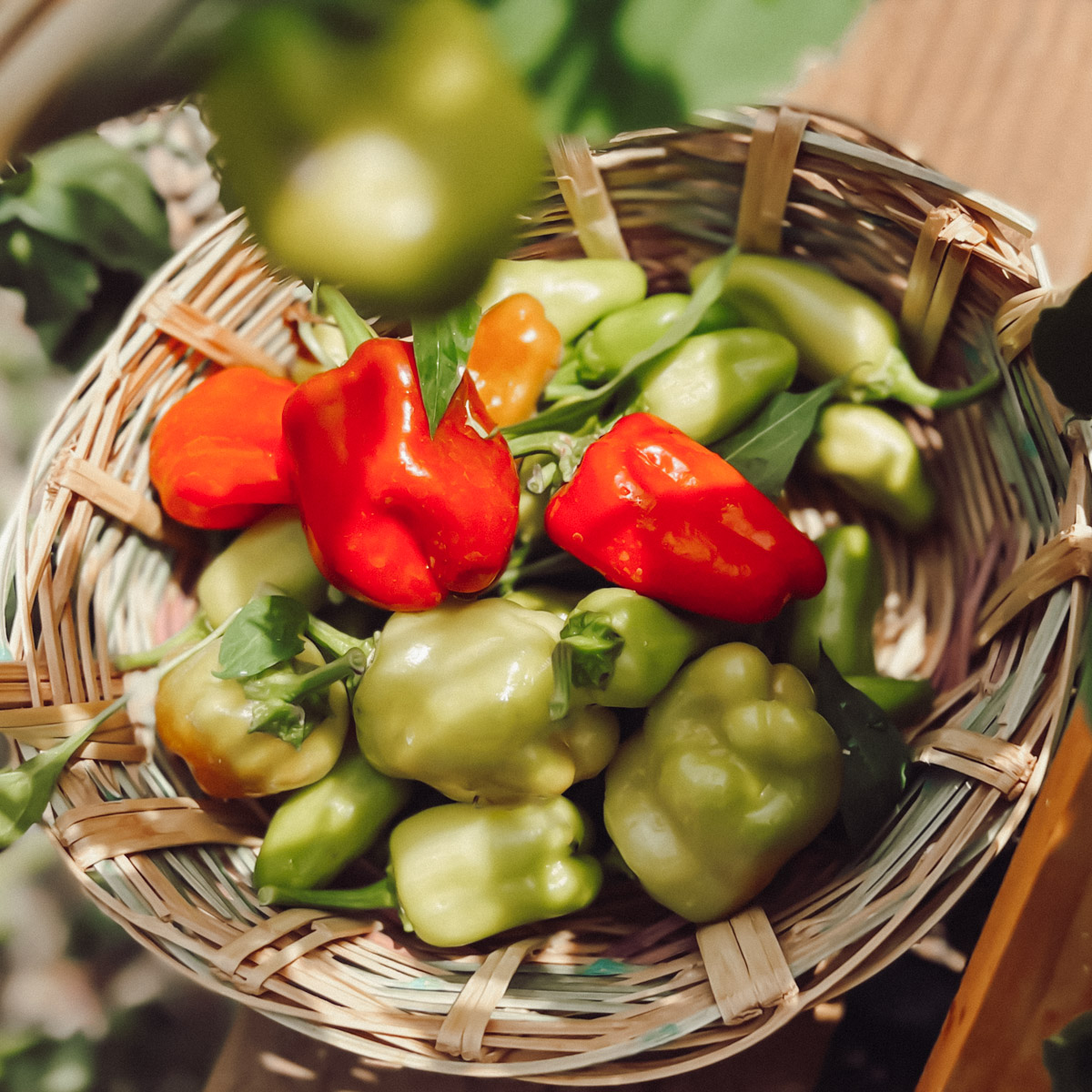Find Out the Best Fertilizers for Peppers: Top Picks for Ideal Development
Find Out the Best Fertilizers for Peppers: Top Picks for Ideal Development
Blog Article
How Plant Foods Play an Essential Function in Cultivating Plentiful and healthy and balanced Pepper Crops
Plant foods serve as the backbone of successful pepper cultivation, offering a critical approach to nourishing the dirt and promoting ideal plant development. The detailed dancing between important nutrients and the pepper plants' physiological processes underscores the essential function that fertilizers play in making sure an abundant harvest.
Relevance of Nutrient-Rich Plant Foods
The application of nutrient-rich plant foods plays a critical role in boosting the productivity and high quality of pepper crops in modern farming techniques. Nitrogen, phosphorus, and potassium are primary nutrients that are crucial for the growth and development of pepper plants.
Inadequate levels of these nutrients can bring about stunted growth, reduced yields, and sensitivity to conditions (best fertilizers for peppers). Nutrient-rich plant foods give a targeted service to guarantee that pepper plants get the required aspects for optimal growth and productivity. Additionally, these fertilizers help improve soil fertility in time, producing a lasting atmosphere for lasting pepper cultivation
Enhancing Plant Growth and Advancement
To optimize plant development and development in pepper plants, strategic application of nutrient-rich fertilizers is vital. Fertilizers play an important function in enhancing the total health and wellness and productivity of pepper plants by supplying them with important nutrients that might be doing not have in the soil.
Along with these macronutrients, micronutrients such as magnesium, zinc, and iron are additionally important for the proper performance of different plant processes. Iron, for circumstances, is required for chlorophyll production, which is vital for photosynthesis and total plant development. Zinc plays a critical duty in enzyme task and hormone synthesis, impacting plant development and development at a mobile level. Magnesium is vital for the formation of chlorophyll and total power transfer within the plant.

Boosting Disease Resistance With Fertilizers
By tactically integrating targeted plant foods, farmers can boost the condition resistance of pepper plants, making certain optimum plant health and wellness and productivity. Fertilizers consisting of necessary nutrients like phosphorus, nitrogen, and potassium play a critical role in enhancing pepper plants' immune systems, making them extra resilient to different conditions.

Taking Full Advantage Of Pepper Yield Through Fertilizing
Using a well balanced fertilizing technique is essential to accomplishing maximum pepper yield and guaranteeing optimal crop productivity. By giving peppers with the right nutrients at the correct time, farmers can considerably improve their return possibility. Potassium, phosphorus, and nitrogen are important aspects for pepper growth, with nitrogen helping in leaf and stem growth, phosphorus supporting root growth and blossom development, and potassium advertising overall plant health.
To optimize pepper yield, it is essential to conduct soil tests to determine existing vitamins and mineral degrees and determine any type of shortages that require to be addressed. Based upon these outcomes, farmers can develop a tailored fertilizing plan that fulfills the specific requirements of their pepper plants. Additionally, proper fertilization methods such as split applications throughout the expanding period can guarantee constant vitamins and mineral availability for the plants.

Sustainable Plant Food Practices for Peppers
In thinking about lasting fertilizer practices for peppers, it is vital to focus on long-term soil health and ecological stewardship in combination with making the most of crop performance. One vital approach is the use of organic fertilizers such as garden compost, manure, or cover plants, which not just give essential nutrients to the peppers yet additionally add to dirt framework and microbial activity. best fertilizers for peppers.
Furthermore, precision agriculture techniques, such as soil testing and targeted nutrient applications, can aid enhance fertilizer use, making sure that peppers receive the nutrients they need without excess runoff into waterways. This not only profits the atmosphere by minimizing air pollution yet additionally saves costs for farmers by decreasing waste. By adopting sustainable plant food techniques, pepper farmers can secure the health and wellness of their crops, soil, and bordering environments for future generations.
Conclusion
Finally, fertilizers are crucial for growing abundant and healthy pepper plants. best fertilizers for peppers. They give essential nutrients for plant growth and development, boost condition resistance, and maximize yield. By the original source carrying out sustainable fertilizer techniques, farmers can guarantee the lasting health of their pepper plants and add to a more effective and environmentally-friendly agricultural system
The complex dancing between vital nutrients and the pepper plants' physiological processes highlights the crucial function that plant foods play in making sure a plentiful harvest.To optimize plant growth and growth in pepper crops, strategic application of nutrient-rich plant foods is necessary. Plant foods play a critical function in improving the overall wellness and productivity of pepper plants by offering them with important nutrients that might be lacking in the dirt.By purposefully incorporating targeted plant foods, farmers can reinforce the condition resistance of pepper crops, guaranteeing optimum plant health and performance. Plant foods including important nutrients like phosphorus, nitrogen, and potassium play a crucial role in enhancing pepper plants' immune systems, making them a lot more resistant to various illness.
Report this page